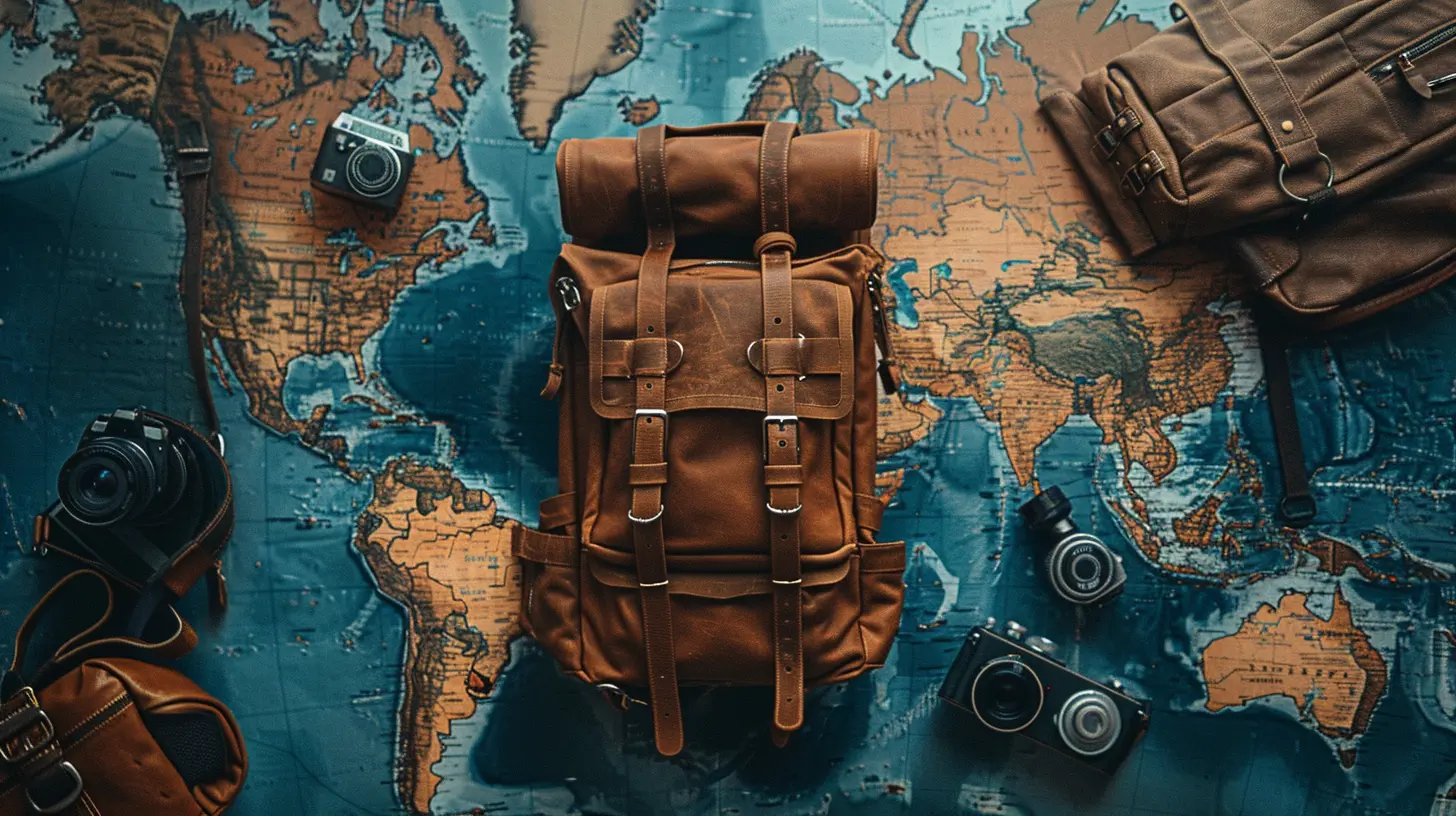Privacy Tools for the Privacy-Conscious Traveler
29 September 2025
Traveling is an exhilarating experience, but it comes with its own set of challenges—especially if you're a privacy-conscious traveler. From public Wi-Fi networks that are about as secure as a screen door in a submarine to the constant risk of having your personal data snooped on, the modern traveler faces countless threats to their privacy.
So, if you're the type of person who likes to explore the world while keeping your digital life as secure as possible, you’re in the right place. In this article, we’re diving into the best privacy tools for travelers who want to keep their personal data locked down tighter than Fort Knox.

Why Privacy Matters When Traveling
Before we jump into the tools, let’s talk about why you should care about privacy when you’re on the road. Think about it: when you travel, you're constantly connecting to unknown and potentially insecure networks—be it in airports, hotels, cafes, or even public transportation. These networks are often poorly secured, making them prime targets for hackers and data thieves.And it doesn’t stop there. When you're in a new country, you're subject to different laws and regulations regarding the collection and use of personal data. In some places, governments may monitor internet traffic heavily. So, if you’re not taking steps to secure your online privacy, you might be leaving a digital trail that could be used against you.
But don’t sweat it! With the right privacy tools, you can significantly reduce your risk and enjoy your travels without worrying about who might be snooping on your online activity.

Essential Privacy Tools for Travelers
Now, let’s get down to the nitty-gritty. Here's a list of the most essential privacy tools every traveler should have in their toolkit.
1. Virtual Private Network (VPN)
If you're serious about protecting your privacy while traveling, a VPN should be your first line of defense. A VPN encrypts your internet traffic and routes it through a secure server, making it much harder for anyone (hackers, governments, or even your internet service provider) to see what you're doing online.Benefits of Using a VPN:
- Encrypts Your Data: A VPN creates a secure tunnel for your data, making it nearly impossible for third parties to intercept or snoop on your online activity.- Bypass Geo-Restrictions: VPNs allow you to change your location virtually, so you can access content that might be restricted in the country you're visiting.
- Public Wi-Fi Protection: VPNs are a must when connecting to public Wi-Fi networks since these are often unsecured and ripe for attacks.
Top VPNs for Travelers:
- ExpressVPN: Known for its blazing speeds and robust security features, ExpressVPN is perfect for travelers who want no-compromise privacy.- NordVPN: A reliable choice with a large server network, NordVPN offers strong encryption and an added layer of security with its Double VPN feature.
- Surfshark: An affordable option that doesn't skimp on features, Surfshark allows unlimited device connections, making it ideal for families or groups.
2. Password Manager
How many times have you used the same password across multiple accounts? Be honest. Unfortunately, reusing passwords is one of the easiest ways to get hacked. And when you're traveling, you’ll likely be logging into various services across multiple devices, which increases the risk.This is where a password manager comes in. A password manager stores all your passwords in a secure vault and helps you generate strong, unique passwords for each of your accounts.
Benefits of Using a Password Manager:
- Creates Strong, Unique Passwords: No need to remember complex passwords for each account. The manager does it for you and automatically fills in your credentials.- Encrypted Vault: Your passwords are stored in an encrypted vault, so even if someone gains access to your device, they won’t be able to see your passwords.
- Cross-Device Syncing: Most password managers sync across multiple devices, making it easy to log in no matter where you are.
Top Password Managers for Travelers:
- LastPass: Offers both free and premium plans with features like encrypted storage and password sharing.- Dashlane: Known for its intuitive interface and dark web monitoring, Dashlane is an excellent choice for frequent travelers.
- 1Password: A popular choice for its strong security features and ease of use, 1Password also offers advanced multi-factor authentication options.
3. Encrypted Messaging Apps
When you're on the move, you'll likely want to stay in touch with friends, family, or colleagues. But here’s the thing: not all messaging apps are created equal when it comes to privacy. Standard messaging apps like SMS or even some popular ones like Facebook Messenger don’t encrypt your messages by default, meaning anyone with the right tools could potentially read them.For truly private communication, you'll want to use an app that offers end-to-end encryption.
Benefits of Using Encrypted Messaging Apps:
- End-to-End Encryption: This ensures that only you and the person you're communicating with can read your messages. Even the service provider can't access your conversations.- Secure Voice and Video Calls: Many encrypted messaging apps also offer secure voice and video calls, providing an all-in-one privacy solution.
Top Encrypted Messaging Apps for Travelers:
- Signal: Widely regarded as one of the best encrypted messaging apps, Signal is open-source and offers features like disappearing messages.- Telegram: While not end-to-end encrypted by default, Telegram offers a "Secret Chat" feature that provides end-to-end encryption for messages.
- WhatsApp: Owned by Facebook but still offers end-to-end encryption by default for both messages and calls.
4. Secure Email Providers
Email is one of the oldest forms of communication on the internet, but it’s also one of the least secure. If you're still using a regular email provider like Gmail or Yahoo while traveling, your messages could be intercepted or monitored. To keep your email communication private, consider switching to a secure email provider that offers encryption.Benefits of Using a Secure Email Provider:
- End-to-End Encryption: Ensures that only you and your recipient can read the contents of your email.- No Tracking: Most secure email providers don’t track you or serve ads based on your email content.
Top Secure Email Providers for Travelers:
- ProtonMail: Based in Switzerland, ProtonMail offers end-to-end encryption and a strict no-logs policy.- Tutanota: Another great option, Tutanota provides encrypted email services and also offers end-to-end encrypted calendars.
5. Privacy-Focused Browsers and Search Engines
If you're using a regular browser like Chrome, you’re likely being tracked by advertisers, websites, and even your own search engine. When traveling, it’s wise to switch to privacy-focused browsers and search engines that don’t log your activity or bombard you with targeted ads.Benefits of Using Privacy-Focused Browsers and Search Engines:
- No Tracking: Privacy-focused browsers and search engines don’t track your browsing habits or store your search history.- Ad-Blocking: Many privacy browsers come with built-in ad-blockers, so you can enjoy a cleaner, faster browsing experience.
- Additional Encryption: Some browsers offer additional layers of encryption to protect your online activity from prying eyes.
Top Privacy-Focused Browsers and Search Engines:
- Brave: A fast, privacy-focused browser that blocks ads and trackers by default.- Tor Browser: For the truly privacy-conscious, Tor routes your traffic through multiple nodes, making it extremely difficult to track your online activities.
- DuckDuckGo: A search engine that doesn’t track your searches or store your personal information.
6. Two-Factor Authentication (2FA) Apps
Even with strong passwords, your accounts could still be vulnerable if someone manages to get their hands on your login credentials. That’s where two-factor authentication (2FA) comes in. 2FA adds an extra layer of security by requiring a second form of verification (usually a code sent to your phone or generated by an app) before you can log in.Benefits of 2FA:
- Extra Layer of Security: Even if someone steals your password, they won’t be able to access your account without the second form of authentication.- App-Based 2FA: Many 2FA apps work offline, making them perfect for travelers who may not always have cell service.
Top 2FA Apps for Travelers:
- Google Authenticator: Simple and reliable, Google Authenticator generates time-based codes for two-factor authentication.- Authy: Offers cloud backups and works across multiple devices, making it a great choice for travelers.

Final Thoughts
Traveling is supposed to be fun, not nerve-wracking. But in today’s digital world, online privacy is something we all need to take seriously. Whether you're hopping between coffee shops in a foreign city or connecting to hotel Wi-Fi, it’s important to consider the tools that will help protect your personal information.By arming yourself with the right privacy tools—like a VPN, password manager, encrypted messaging apps, and secure email—you’ll have the peace of mind to enjoy your travels without worrying about who might be peeking over your digital shoulder.
Safe travels, and stay private!
all images in this post were generated using AI tools
Category:
Privacy ToolsAuthor:

Pierre McCord
Discussion
rate this article
1 comments
Jade Perez
Travel light, but don’t forget your digital invisibility cloak!
October 1, 2025 at 3:57 AM

Pierre McCord
Absolutely! Staying lightweight is key, but digital tools are essential for protecting your privacy on the go.


